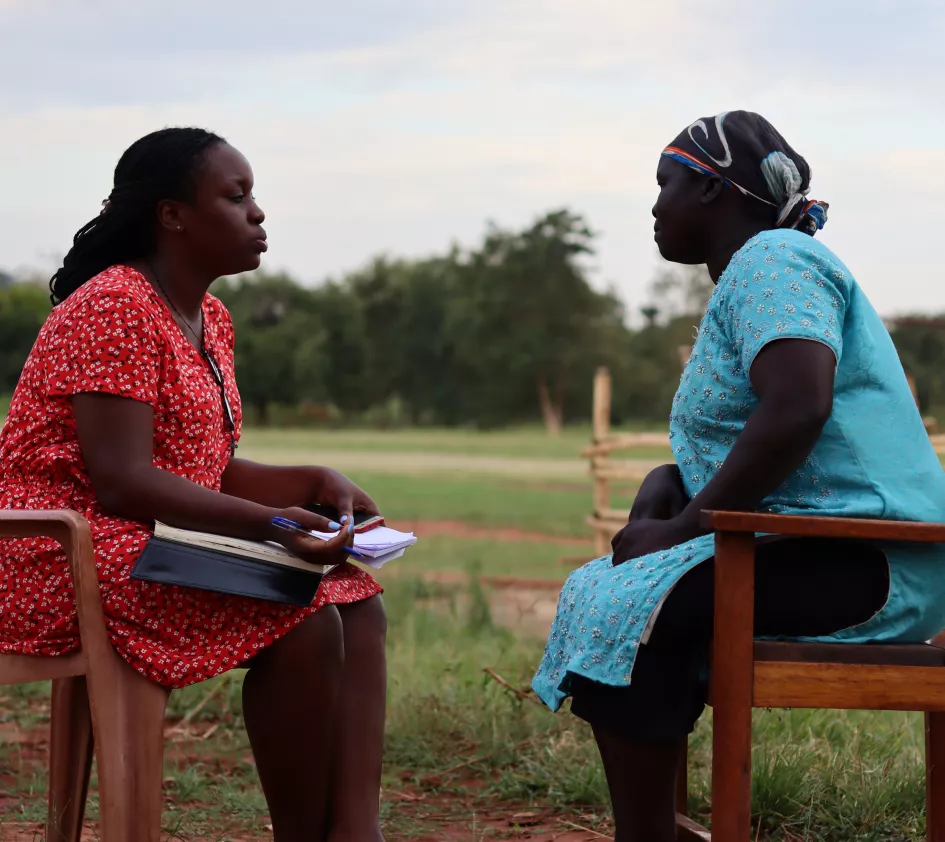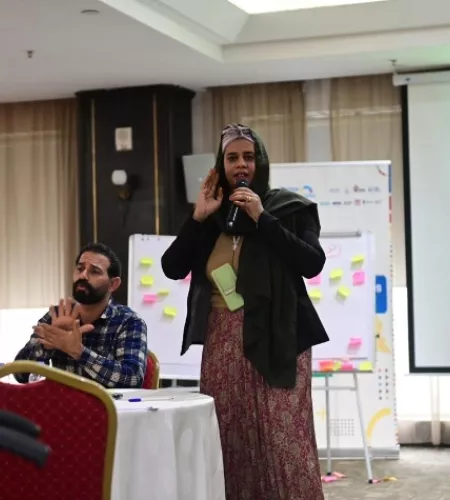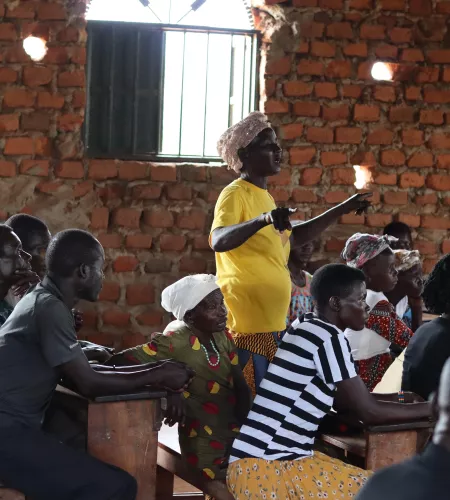The organization is involved in rolling out the We are Able! project in Sudan. Together with five other organizations, ZOA launched this project, funded by the Dutch Ministry of Foreign Affairs. The goal is to raise awareness among people with disabilities in six African countries, including Sudan, about their rights and what they can still do, despite their disabilities, to support themselves.

‘Sign language has boosted my confidence’
Weam El Fadol from Sudan suffered from middle ear infections as a two-year-old child. These were left untreated, causing her hearing to worsen over time. For a long time, she felt insecure about her position in society, but she did not let that hold her back. Now, she is the chairwoman of a local organization advocating for deaf people in Sudan.
Weam has a hearing impairment and advocates for deaf people
‘Laws and policies in Sudan are not designed for people with disabilities’
Since 2022, the hard-of-hearing Weam El Fadol from Sudan has been the chairwoman of a Sudanese organization that supports deaf people, the Sudan National Union of the Deaf. She never imagined this. "Earlier, I felt like I wasn’t strong enough to stand up for my rights, let alone guide others in doing so."
Weam, who had hearing problems due to untreated middle ear infections as a child, has also benefited from the project. "We are Able! gave me confidence in myself and changed my perspective. I have learned more about the rights of people with disabilities. My understanding and knowledge have grown."
She can now use these qualities, as she helps deaf people with the challenges they face at the Union of the Deaf. “My colleagues and I inform deaf people about their rights, teach them sign language, and work to strengthen their position in society.”

Interpreter
Behind the scenes, Weam and her colleagues do even more. “We are trying to further develop Sudanese sign language. We also have an interpreter who can translate sign language, so that hearing people can understand us, and we can understand them.”
In Sudan, people with disabilities have fewer rights than in countries like the Netherlands. We are Able! aims to improve the social position of people with disabilities in countries like Sudan. “There is a stigma around wearing a hearing aid,” says Weam. “Deaf people are often mocked for their accent, as they cannot speak the language properly due to their deafness or hearing impairment.”
She continues: “Additionally, they face a lot of discrimination. In education and employment, they do not receive the same opportunities as hearing people. Deaf or hard-of-hearing individuals, for instance, are only allowed to study art. The situation for deaf women is even more difficult. They often cannot find a marriage partner.”
Discrimination
Deaf people in Sudan suffer from discrimination in many ways, states Weam. “Sudan signed the Convention on the Rights of Persons with Disabilities, under which the National Disability Councils were formed, but the deaf have not had the opportunity to manage it until now. There is no deaf council secretary, it is hidden discrimination.”
In many countries, the deaf are prohibited from driving a car. “We see facilitation arrangements for the deaf to drive, but in Sudan, the issue needs more work,” says Weam. “The lack of harmonization of some laws has strengthened the status of the deaf as a less fortunate group in rights.”

War
Also, the deaf in the emergency areas are the least fortunate. “Our colleague Saad, head of the Union of the Deaf in West Darfur, was killed in El Geneina when trying to survive the war,” Weam shares.
She explains that the war in Sudan further highlights that deaf people are part of a disadvantaged group. “When the war broke out, deaf people received no information about it. There is no official sign language translation of the events happening. As a result, people did not know where they could flee or find shelter."
Even if they manage to find a safe place, deaf people often face other problems, Weam explains. “There is no assistance when they arrive at a refugee camp. They are very difficult to reach, and as a result, they receive little help from the government or aid organizations. These people have to survive in harsh conditions. In shelter camps, they suffer from poor access to relief services.”
According to Weam, many people have become deaf due to the war. "The sound of bombs has caused hearing damage, and there are also people who no longer have ears or are missing parts due to shelling."
For all these people, there is hardly any care available. Weam’s organization wants to change this with the We are Able! project by actively involving deaf and hard-of-hearing people in policies and legislation. “I want to give them back their confidence, just as I regained mine,” says Weam. “I want to show them that they can still do a lot and that they absolutely matter in society.”
